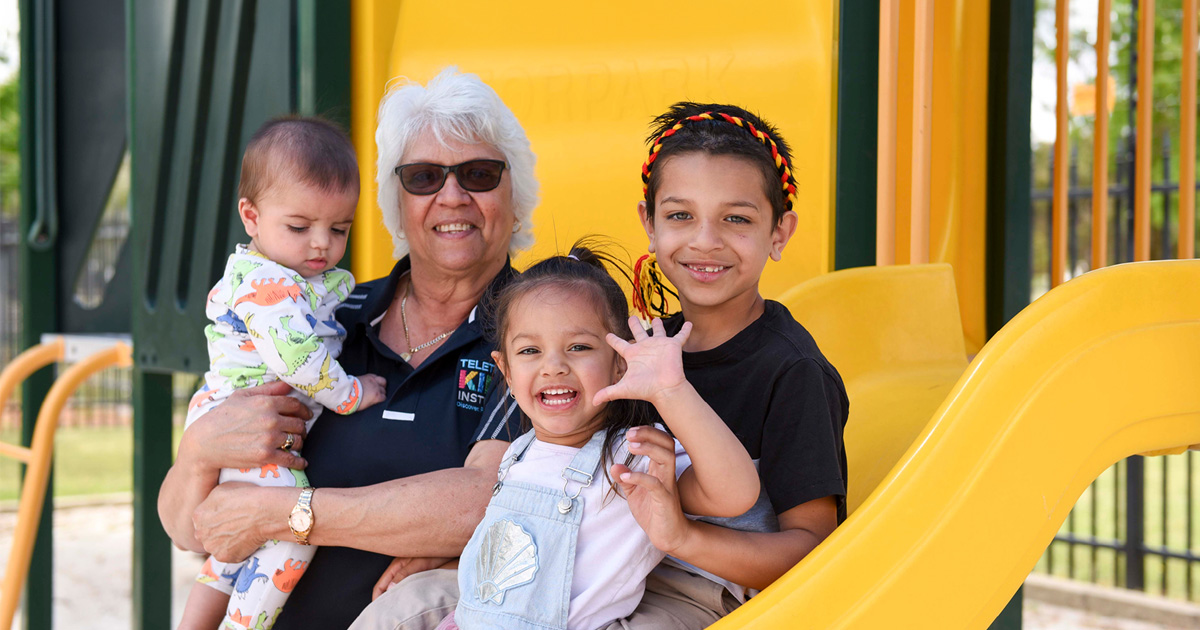Search
Showing results for "aboriginal respiratory"
Research
The impact of influenza infection on young children, their family and the health care systemInfluenza infection in young children has a significant impact on medication use, absenteeism and the use of health care service
Research
Clinical care of children and adolescents with COVID-19: recommendations from the National COVID-19 Clinical Evidence TaskforceThe epidemiology and clinical manifestations of severe acute respiratory syndrome coronavirus 2 (SARS-CoV-2) infection are different in children and adolescents compared with adults. Although coronavirus disease 2019 (COVID-19) appears to be less common in children, with milder disease overall, severe complications may occur, including paediatric inflammatory multisystem syndrome.
Research
Immunogenicity and Immune Memory after a Pneumococcal Polysaccharide Vaccine Booster in a High-Risk Population Primed with Pneumococcal Conjugate VaccinePPV is immunogenic in 9-month-old children at high risk of pneumococcal infections and does not affect the capacity to produce protective immune responses
Research
Change in health outcomes for First Nations children with chronic wet cough: rationale and study protocol for a multi-centre implementation science studyIn children, chronic wet cough may be a sign of underlying lung disease, including protracted bacterial bronchitis (PBB) and bronchiectasis. Chronic (> 4 weeks in duration) wet cough (without indicators pointing to alternative causes) that responds to antibiotic treatment is diagnostic of PBB. Timely recognition and management of PBB can prevent disease progression to irreversible bronchiectasis with lifelong consequences. However, detection and management require timely health-seeking by carers and effective management by clinicians.
Research
ISOM 2023 research Panel 4 - Diagnostics and microbiology of otitis mediaTo identify and review key research advances from the literature published between 2019 and 2023 on the diagnosis and microbiology of otitis media (OM) including acute otitis media (AOM), recurrent AOM (rAOM), otitis media with effusion (OME), chronic suppurative otitis media (CSOM) and AOM complications (mastoiditis).
Research
Reduction in disparity for pneumonia hospitalisations between Australian indigenous and non-Indigenous childrenIn the 1990s pneumonia hospitalisation rates in Western Australia (WA) were 13 times higher in Indigenous children than in non-Indigenous children...

A decade long partnership with Wesfarmers Ltd. and the Wesfarmers Centre of Vaccines and Infectious Diseases has led to world-class paediatric research and important collaborations fuelling the Centre’s trajectory towards easing the burden of infectious diseases.
Research
Parental awareness and attitudes towards prevention of respiratory syncytial virus in infants and young children in AustraliaTo assess parental awareness of respiratory syncytial virus (RSV) and the level of acceptance of future RSV prevention strategies. A cross-sectional online survey was implemented targeting "future" and "current" parents of children aged ≤5 years in Australia.
Research
Childhood pneumonia and meningitis in the Eastern Highlands Province, Papua New Guinea in the era of conjugate vaccines: study methods and challengesRecruitment of large numbers of pediatric pneumonia and meningitis cases and community controls in a third-world setting presents unique challenges
The Wesfarmers Centre is pleased to announce the successful recipients for the 2021 Round 2 Seed Funding Grants. Julie Hibbert | Validating a
